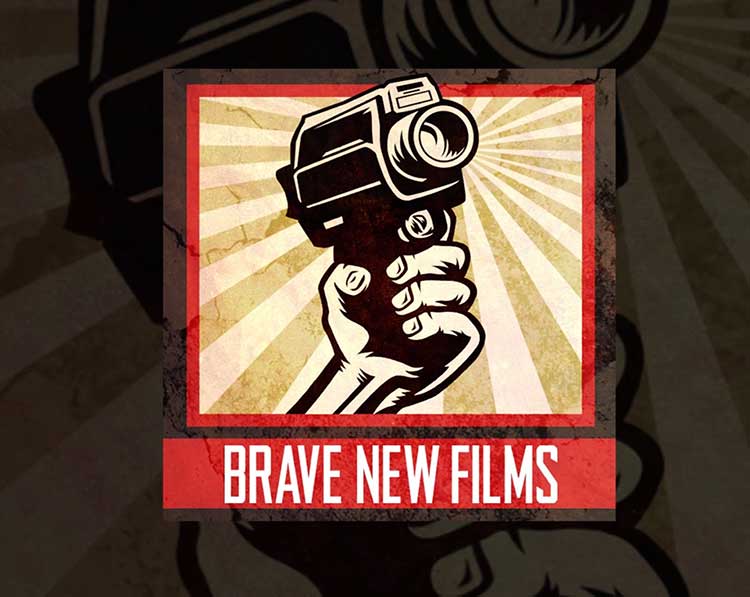To Keep Us from Documenting Ourselves to Death

“It’s one thing for folks to applaud ‘A Raisin in the Sun’, Richard, and quite another for them to force legislators to deal with the housing horrors of Harlem and Chicago.”
— James Baldwin to the author in the early sixties.
I just applied to be the Outreach Director for Brave New Films, a highly experienced cinematic group devoted to making a difference with their documentaries. If they don’t take me on board, they’re out of their minds. Why? Well, for starters, everyone knows that — as one of my home schooled teens at Flannery O’Connor School has said often in these CC quarters — “We are documenting, discussing, debating, diverting and demonstrating ourselves to death in lieu of doing something new in solidarity.” And, being quite aware of that, writing about that incessantly, I’m chomping at the bit to present quality documentaries to the public with a new approach.
There’s way too much competition out there. Brave New Films needs to blend their offerings with a proposal for movement in solidarity. So that no matter what the focus of a given film happens to be it will be presented in the context of a “plan for action” that stands to give viewers something new to do following the hour or two that they spend in the classroom or theater.
Not the usual puff stuff that comes under the umbrella of “Get Involved” and/or “Take Action” which is spotlighted ad nauseum on websites.
That’s easy to do, as far as I’m concerned; my personal experience makes me supremely qualified to get creative on that count. But — first — there must be the acknowledgement that films stirring up passions aren’t enough to cut the muster in the real world. That concerned citizens fired up by the cinematic fare offered by Brave New Films (or any movie producers, for that matter) cannot make a sufficient difference respecting any of our collective crises soon enough unless they embrace some movement in solidarity which follows a fresh paradigm.
As a rule, viewers come away from documentaries feeling like they’ve paid their good citizen dues by simply watching film fare, discussing it, and then maybe making a call or two to a representative, or joining hands by marching in circles with placards, or boycotting, etc. And that “etc” cited comprises quite a long list. A VERY long list of obsolete forms of protest. Obsolete in the sense that all of the ways in which activists express their protest these days demand a supplement of some kind. For instance, in one of my many pieces focused on the injustice of Troy Davis’ execution, I noted that I didn’t just provide my John Hancock on the million-person petition that was signed by Pope Benedict XVI, Jimmy Carter and Angela Davis back in 2011; I attempted to back up my signature with a “supplement” directed to the Governor of Georgia… who could have — unilaterally — saved Troy’s innocent life.
If you want to kill the Death Penalty in the U.S., you have to inject some new ingredient into the activist mix. Ditto for all of the other major issues of our times.
For Brave New Films, then, I would secure screenings at schools, colleges and universities on the basis of my being able to provide fresh ideas about HOW TO ACTUALLY HAVE A SHOT AT MAKING A HUGE DIFFERENCE. I would sell the given documentary as an opportunity not to just get informed, but to get audience members channeled into movement in solidarity designed to do two things: a) encourage civic engagement that was unprecedented and b) send positive ripples nationwide.
That latter point would generate ongoing, positive publicity for Brave New Films at this juncture in history, when folks are chomping at the bit to transform the U.S. into a habitable nation.
And such an approach would — maybe — keep us from documenting ourselves to death.
Truth be told, as many documentary filmmakers and their distributors as possible need to coordinate something along the lines of what I’m recommending. For the Collective Good.
Richard Martin Oxman has been an educator since 1964, when he began teaching Cinema History and other disciplines at Rutgers University. During the last fourteen years he’s conducted unrequited outreach with scores of documentarians (attempting to move in solidarity with them), and he would welcome an opportunity to delineate his experiences with interested parties. He can be reached at aptosnews@gmail.com.
https://countercurrents.org/2018/04/17/to-keep-us-from-documenting-ourselves-to-death/

0 Comments:
Post a Comment
Subscribe to Post Comments [Atom]
<< Home